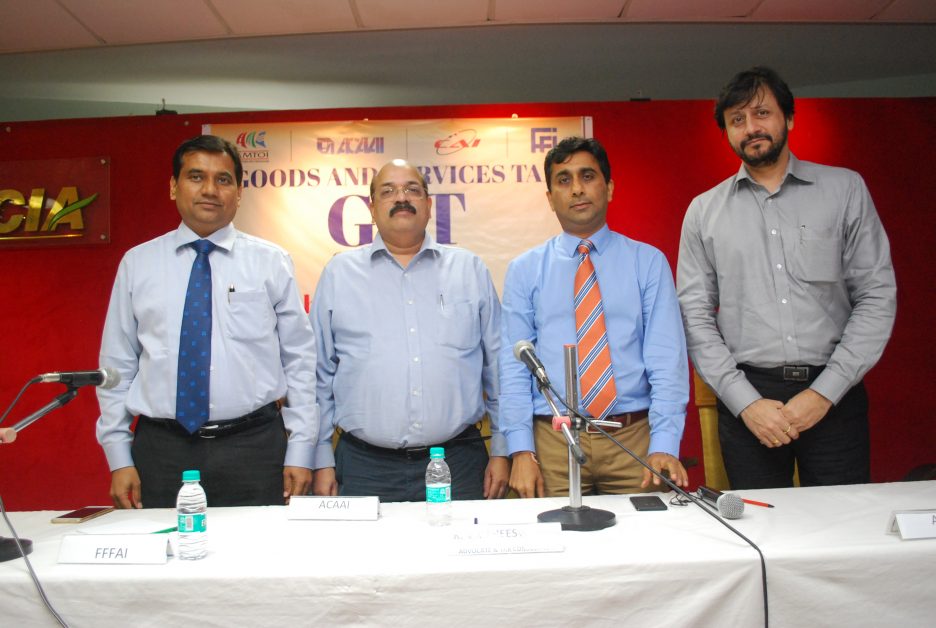[vc_row][vc_column][vc_column_text]
On May 5 FFFAI, AMTOI, CAI and ACAAI jointly organised a Seminar on Compliance of GST Rules. The seminar was conducted by renowned Advocate & Tax Consultant from Chennai Mr. K. Vaitheeswaran. Mr. Vaitheeswaran is an expert in the field of Indirect Tax and has provided inputs to the CBDT on various Tax Reforms from time to time. The seminar was attended by about 200 participants from the above associations.
In his presentations Mr Vaitheeswaran maintained that GST would be the game changer for manufacturing, exim, forwarding and logistics sector. Both government and industry are keen to implement GST from July 1, 2017. “It is a win-win situation for all. Central and State Governments are looking at increasing the tax base and tax collections through GST. At the same time Industry wants GST to eliminate the cascading effect of taxes by implementing GST,” he pointed out.
It should be noted that according to the new tax regime CGST would be a levy by the Central Government through the law made by the Parliament, SGST would be a levy by each State through law made by State Legislature and IGST would be a levy by the Centre through law made by the Parliament on the supply of any goods and / or services in the course of inter-State trade or commerce. IGST would also apply on a supply of goods and / or services in the course of import into the territory of India. Under GST regime imports by traders are likely to increase because of availability of IGST credit against CVD and SAD cost.
Similarly, inter-state movement of goods likely to become unhindered. As a result, there would be increase of supply of goods to customers as against stock transfer. “There will be massive change in procurement pattern and big centralised warehouse will play the key role in the entire supply chain and distribution system. Hence, total logistics players would play the key role in this regard,” Mr Vaitheeswaran observed.
He also pointed out that in the new tax regime Section 146 of the Customs Act dealing with license for customs brokers and related regulations, Customs duty, anti-dumping duty and safeguard duty would continue. On the other hand, existing CVD and SAD would become IGST. And, both Centre and State will tax customs brokers.
Mr Vaitheeswaran, however, cautioned on a likely post-GST complex scenario because of some gray areas of determining CGST, SGST and IGST. Also, there might be some issues on determining the tax brackets, item-wise.
“There will be a possibility of increase in import for some goods due to cost reduction on account of IGST credit availability. At the same time there will be increase in exports due to simplification of process and uniformity in procedures. Efficient refund system would improve the cash flow of exporters,” Mr Vaitheeswaran concluded on a positive note.
Also spoke at this seminar were Mr Shankar Shinde, Vice Chairman, FFFAI; Mr Nailesh Gandhi, past President, BCHAA and Nitam Khosla from AMTOI.
[/vc_column_text][/vc_column][/vc_row]







